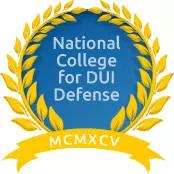By estimates from the Texas Department of Transportation (TXDOT), three people will be injured or killed in a drunk driving accident every hour in Texas alone. Due to the prevalence and dangers of intoxicated driving, the state has implemented some of the strictest driving while intoxicated (DWI) laws in the country. If you have been charged with a DWI and you believe those charges are unjust or based on exaggerations, one of the first steps in your defense is understanding the basics of Texas DWI laws, as they could play an integral part in your case.
BAC Limits in Texas
In Texas, a driver of a passenger vehicle is considered legally intoxicated if his or her blood alcohol concentration (BAC) level tests at 0.08% or greater. A person who is illegally intoxicated cannot operate any vehicle, even if he or she appears to be in complete control of their thoughts and motor skills. A driver of commercial vehicle in Texas is illegally intoxicated with a BAC level tested at 0.04% or greater; the limit is halved as it is assumed that a commercial vehicle requires at least twice as much skill and focus to operate safely when compared to a standard automobile. Anyone under the age of 21 can be charged with DUI if a BAC test reports at any amount greater than 0.000%.
Since the Texas criminal justice system is unmistakably serious about cracking down on drunk drivers, police can make a DWI arrest even without conducting a BAC test that reported the driver as legally intoxicated. If a driver has any detectable amount of alcohol or drugs in his or her system and exhibits dangerous driving behaviors, a highway patrol officer can pull them over and arrest them for suspicion of DWI. This is typical protocol may lead to unjust DWI arrests.
Potential Penalties If Convicted of a DWI in Texas
Driving while intoxicated is considered a Class B misdemeanor in most cases, assuming the alleged offender has no previous DWI convictions on his or her record and did not injure anyone in a drunk driving accident. The classification of a DWI violation can increase based on the circumstances, up to either a Class A misdemeanor or even a felony.
Penalties and consequences that could be associated with a DWI conviction in Texas include:
- Thousands of dollars in fines and fees
- Extensive jail or prison sentences
- Suspension or revocation of driver’s license
- Ignition interlock device (IID) installation
- DWI education and safety courses
- Mandatory drug and alcohol abuse rehabilitation treatments
- Community service
- Auto insurance cost increases
Driving in Texas is a Privilege, Not a Right
Of course, adults in Texas have the right to drink alcohol and use any drug legally obtained or prescribed. However, they do not have the right to drive an automobile shortly after using drugs or alcohol to an extent that impairs their driving ability. This limitation is due to the fact that driving is not a right in Texas, or anywhere in the country, but is an earned privilege instead. Failing to adhere to all DWI laws in Texas permits the TXDOT and its Department of Motor Vehicles (DMV) to remove a driver’s legal privilege to drive until further notice.
Take the Correct Steps to Fight a DWI Charge
The people of Houston and the surrounding greater metropolitan area know that they can depend on Tyler Flood & Associates for tried-and-true legal counsel from a leading Houston DWI defense attorney. Tyler Flood has been board certified in Criminal Defense by the State Bar of Texas, which is a distinction earned through rigorous testing of legal skill and knowledge. He is also highly-rated on Avvo with a 10.0 “Superb” rating, holds an AV Preeminent™ Rating by Martindale-Hubbell®, and is a member of the DUI Defense Lawyers Association. No matter the intricacies of your charges or the force of the prosecution, you can rest easy when our firm is on your side and defending your driving privilege and freedom.
Talk to our Houston DWI lawyer today about your case – call or email us at your first opportunity.









